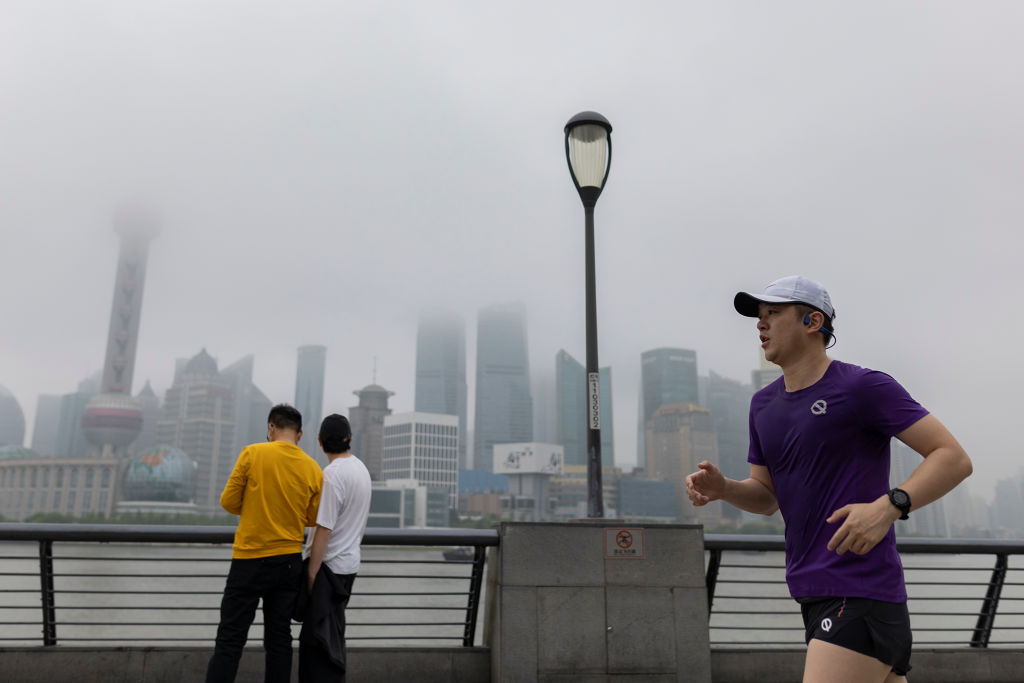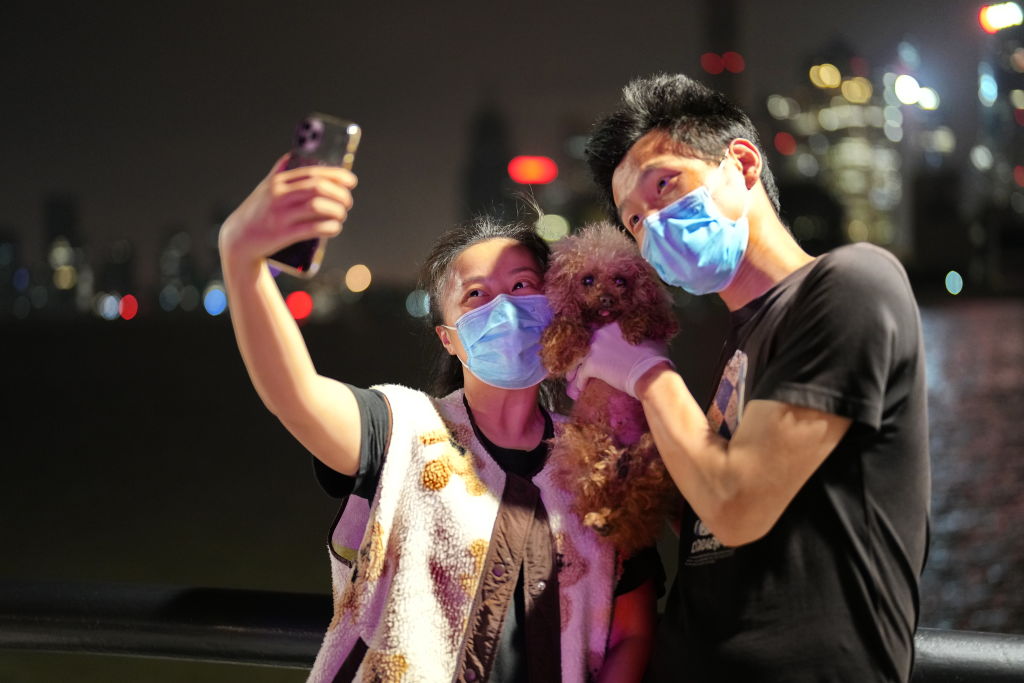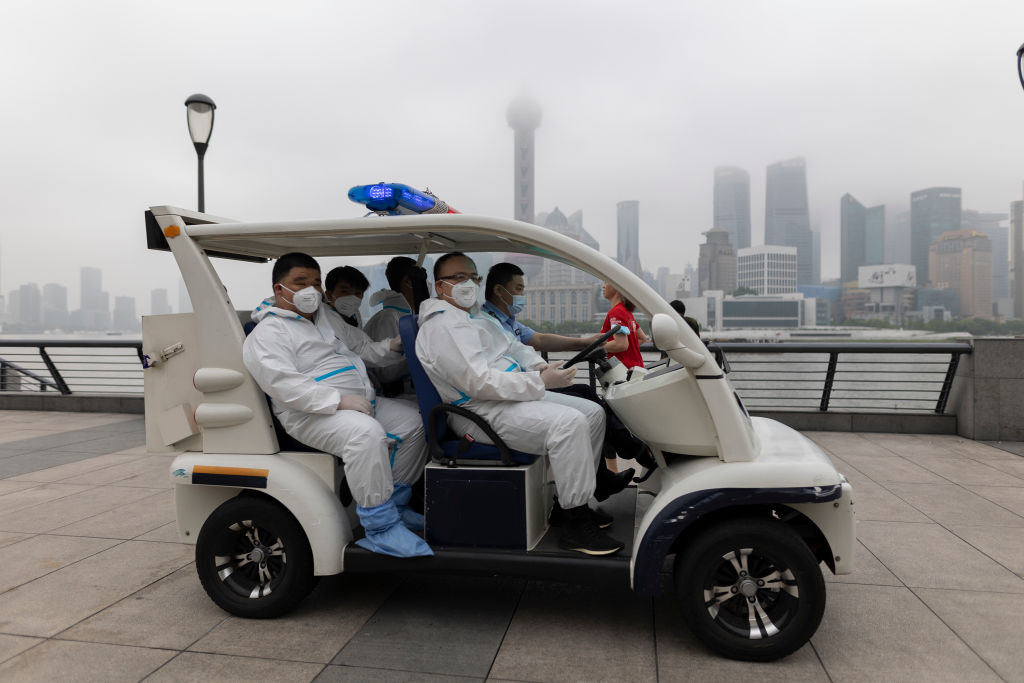
China declared victory over Shanghai’s coronavirus outbreak as the nation reported its fewest new cases in more than three months, vindicating Covid Zero in the eyes of Beijing despite the policy’s rising economic and social toll.
A report on the front page of the People’s Daily newspaper Thursday headlined “Great Achievements Have Been Made in the Defense of Shanghai” claimed victory in the fight against the virus in the city of 25 million. In a separate commentary, the chief mouthpiece of the Communist Party said it proved yet again that Covid Zero is the strategy most suited for China because of the country’s aging population, relatively low vaccination rate among the elderly and children, and inadequate medical resources.
New infections fell to 61 across China on Wednesday, from 68 on Tuesday and the lowest since Feb. 17. It’s a marked turnaround from the tens of thousands of cases reported daily in the first half of April, when Shanghai’s outbreak appeared to be spiraling out of authorities’ control, triggering a city-wide lockdown that disrupted business and upended people’s lives.
Read More: The Rising Costs of China’s Zero-COVID Policy
The city reported just 13 cases for Wednesday, when movement restrictions were eased to allow about 90% of Shanghai’s residents to move about freely for the first time in more than two months.
The dramatic drop in nationwide infections from a peak of almost 30,000 in mid-April will be seen as justification President Xi Jinping is charting the right course. China’s leader has made zero tolerance for Covid a cornerstone of his rule as he seeks an unprecedented third term at the Party congress due later this year. The original epicenter of Covid, China has trumpeted what it sees as its triumph over the pathogen, with its zealous approach leading to one of the lowest death tolls in the world, especially compared to the U.S. with its more than 1 million fatalities.

But keeping the virus out — especially in the face of more contagious and immune-evasive variants — is exacting a hefty price, with the country shut off from the rest of the world and most economists predicting the country will fail to meet its economic growth target for this year. Factories have been shuttered for months in some cases, and supply chains snarled as China deploys a playbook of movement restrictions, mass testing and mandatory isolation of all Covid cases and their close contacts.
The capital, Beijing, only averted a lockdown through aggressive curbs such as asking its 22 million residents to work from home and get tested every day.
The outbreak there is now effectively under control, municipal officials said Wednesday, though the risk of a flareup remains. Authorities are mulling measures to stimulate consumer spending after shopping malls and other entertainment venues were shut last month and only recently started to reopen with capacity limits. Beijing reported 14 cases for Wednesday.
China declared victory over Shanghai’s coronavirus outbreak as the nation reported its fewest new cases in more than three months, vindicating Covid Zero in the eyes of Beijing despite the policy’s rising economic and social toll.
Read More: China’s Public Is Divided Over the Zero-COVID Approach
A report on the front page of the People’s Daily newspaper Thursday headlined “Great Achievements Have Been Made in the Defense of Shanghai” claimed victory in the fight against the virus in the city of 25 million. In a separate commentary, the chief mouthpiece of the Communist Party said it proved yet again that Covid Zero is the strategy most suited for China because of the country’s aging population, relatively low vaccination rate among the elderly and children, and inadequate medical resources.
New infections fell to 61 across China on Wednesday, from 68 on Tuesday and the lowest since Feb. 17. It’s a marked turnaround from the tens of thousands of cases reported daily in the first half of April, when Shanghai’s outbreak appeared to be spiraling out of authorities’ control, triggering a city-wide lockdown that disrupted business and upended people’s lives.

The city reported just 13 cases for Wednesday, when movement restrictions were eased to allow about 90% of Shanghai’s residents to move about freely for the first time in more than two months.
The dramatic drop in nationwide infections from a peak of almost 30,000 in mid-April will be seen as justification President Xi Jinping is charting the right course. China’s leader has made zero tolerance for Covid a cornerstone of his rule as he seeks an unprecedented third term at the Party congress due later this year. The original epicenter of Covid, China has trumpeted what it sees as its triumph over the pathogen, with its zealous approach leading to one of the lowest death tolls in the world, especially compared to the U.S. with its more than 1 million fatalities.
Read More: What a Beijing Lockdown Would Mean for China and the World
But keeping the virus out — especially in the face of more contagious and immune-evasive variants — is exacting a hefty price, with the country shut off from the rest of the world and most economists predicting the country will fail to meet its economic growth target for this year. Factories have been shuttered for months in some cases, and supply chains snarled as China deploys a playbook of movement restrictions, mass testing and mandatory isolation of all Covid cases and their close contacts.
The capital, Beijing, only averted a lockdown through aggressive curbs such as asking its 22 million residents to work from home and get tested every day.
The outbreak there is now effectively under control, municipal officials said Wednesday, though the risk of a flareup remains. Authorities are mulling measures to stimulate consumer spending after shopping malls and other entertainment venues were shut last month and only recently started to reopen with capacity limits. Beijing reported 14 cases for Wednesday.
More Must-Reads from TIME
- Breaking Down the 2024 Election Calendar
- How Nayib Bukele’s ‘Iron Fist’ Has Transformed El Salvador
- What if Ultra-Processed Foods Aren’t as Bad as You Think?
- How Ukraine Beat Russia in the Battle of the Black Sea
- Long COVID Looks Different in Kids
- How Project 2025 Would Jeopardize Americans’ Health
- What a $129 Frying Pan Says About America’s Eating Habits
- The 32 Most Anticipated Books of Fall 2024
Contact us at letters@time.com